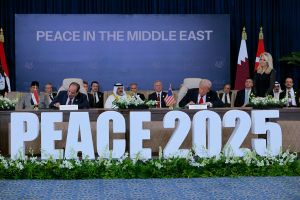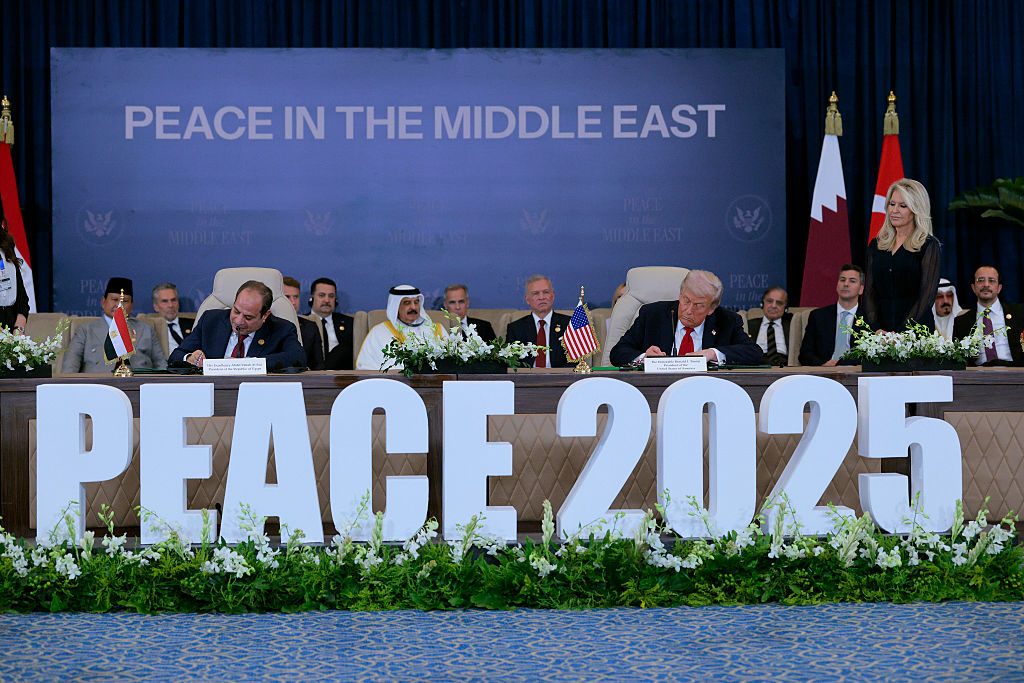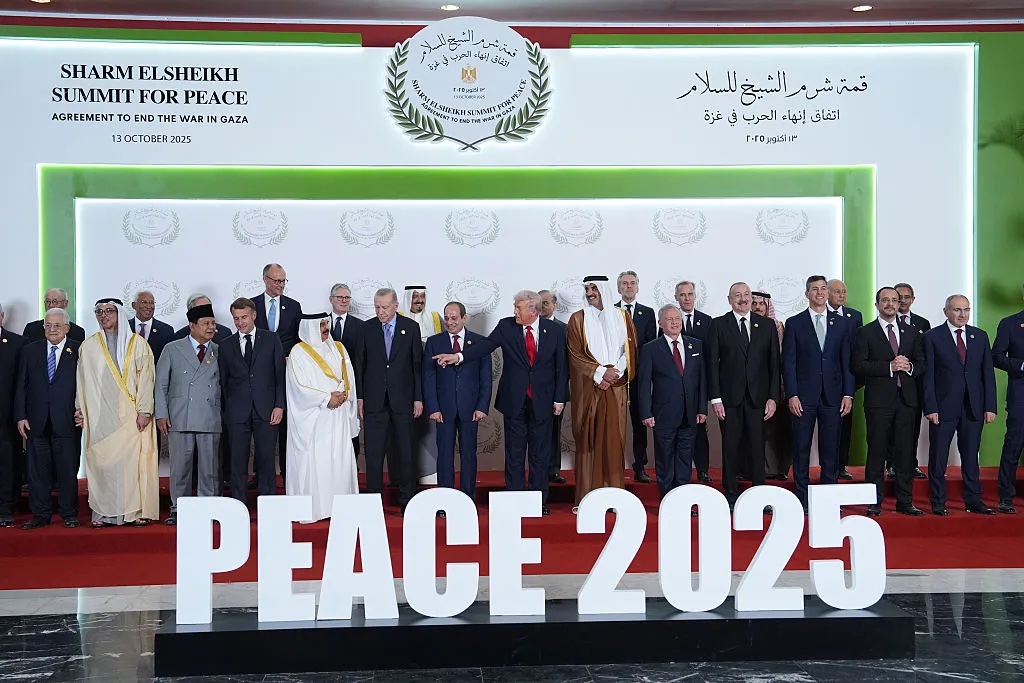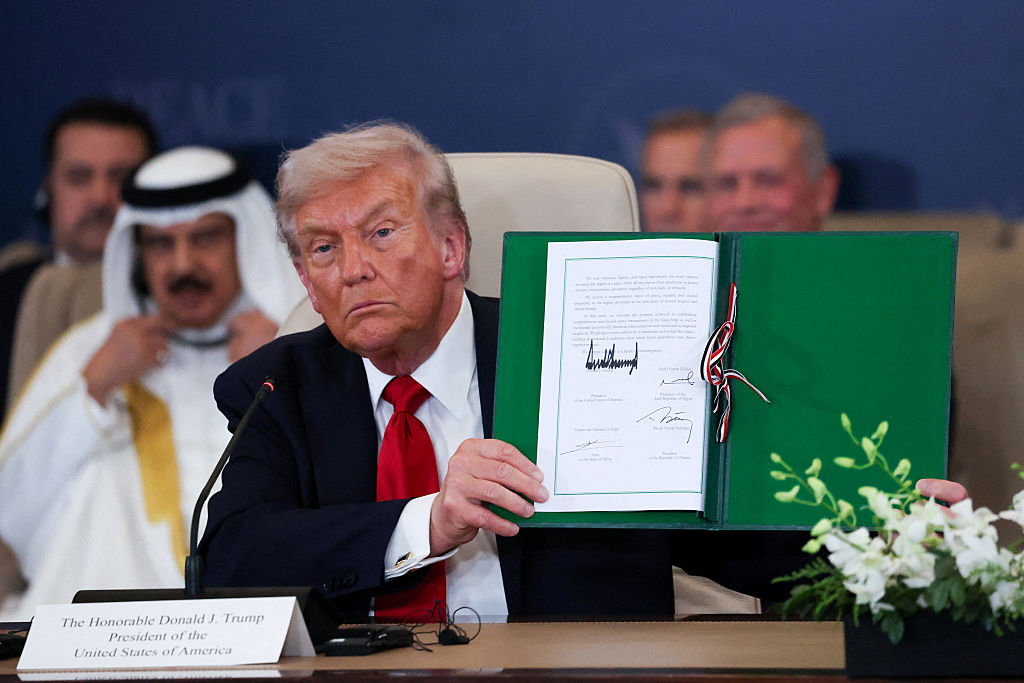As I walked through Vienna last weekend, I happened upon several protests organized by Syrian refugees celebrating the downfall of Bashar al-Assad, the butcher from Damascus. People were singing, some even crying, as they rejoiced the end of the father-and-son al-Assad dictatorship, which had lasted fifty-three years.
The protesters had not yet seen the images of tens of thousands of released political prisoners, the slaughterhouses, or the underground torture chambers, but they had already seen enough. They were among the 12 million people who were displaced during the Syrian Civil War and many of them undoubtedly had family members or close friends who had been among the over half million Syrians who had been killed. It was a rare moment of total jubilation.
Following the successful revolt, the head of the rebel army Hayat Tahrir al-Sham (HTS), Ahmed al-Sharaa, also known as Abu Mohammed al-Jolani, has been trying to stabilize Syria. He has appointed a caretaker prime minister who has been charged with creating a transition government, given amnesty to soldiers who served in the Syrian army, and against all odds is attempting to unify the different military and political factions in this war-torn country. The cards, however, are stacked against him. This is not only due to the immense internal obstacles, but also because for many years now several powerful countries — including Turkey, Russia, Iran, the United States, Qatar and Israel — have been advancing their own interests in Syria.
In recent days, Turkish forces bombed Kurdish targets in northern Syria, and the Turkish-backed Syrian National Army clashed with the Kurdish-led Syrian Democratic Forces, which are backed by the United States. Yet, at this particular moment most notable among the countries intervening in Syria is Israel, my country of origin.
Israel, which borders Syria and has illegally occupied the Syrian Golan Heights for almost sixty years, has been using the power vacuum in Syria to carry out hundreds of air strikes across the country. It has bombed military bases, warehouses and chemical weapons; destroyed airports, naval ships, and research centers. Israel has also violated the 1974 United Nations agreement and sent troops to occupy the buffer zone on the east of Mount Hermon, while its military is in the process of setting up a “sterile defensive zone” in southern Syria.
Defense minister Israel Katz has justified these major breaches of the United Nations Charter by claiming that Israel’s actions are meant to “prevent any terrorist threat to Israel.” Meanwhile, Prime Minister Benjamin Netanyahu has used the opportunity to assert that the illegally occupied Golan Heights will remain part of Israel “for eternity,” claiming that Israel’s strikes and occupation of the east Hermon are meant to ensure Israel’s “security and sovereignty.” Israel’s massive assault on Syrian sovereignty at a time of crisis is, in other words, framed as an act aimed at ensuring security, an act of self-defense.
You would have thought that Israel’s efforts to cast itself as the perpetual victim — even as it deploys massive illegal violence in Syria while continuing to destroy the Gaza Strip — would by now strain credulity. But in the West there are several politicians who not only buy into this myth but also help to circulate it. Among these is Britain’s Labour minister for intergovernmental relations, Pat McFadden.
In response to a Sky News question about Israel’s bombings in Syria, McFadden replied that Israel is “making sure its position in the Golan is secure,” adding: “We will always support Israel’s right to defend itself and make itself secure.” McFadden has either failed to review his history and his own government’s policies, or completely misunderstood what he has reviewed. Moreover, he appears to know nothing about international law.
Had he done his homework, he would have discovered that United Nations Charter Articles 2(4) and 51 prohibit the use of force except if a country is a victim of an armed attack, underscoring that Israel’s strikes in Syria over the past several days are blatantly illegal. Israel’s occupation of the Golan Heights in 1967 and its annexation in 1981 are, according to McFadden’s own Labour government, illegal. Thus, by advocating Israel’s right to ensure “its position in the Golan is secure,” McFadden is in effect legitimizing, on live television, the use of violence not only to hold on to illegally occupied territory of another country, but to occupy more territory.
Unfortunately, McFadden is not a complete outlier. The blanket support Israel has been receiving from western countries as it violates laws that were aimed to ensure “peace and security” is myopic, particularly if one is interested in stabilizing the precarious situation in Syria and in the Middle East more generally. But even from Israel’s own perspective, it is sowing dragon’s teeth for the future. Its belief that might makes rights, and that in the Middle East matters can be resolved only by the sword, will give it some tactical advantages in the present. In the long run, however, the violence that it has unleashed in Syria will come back and haunt it, producing more anger, more hatred and more death.

























